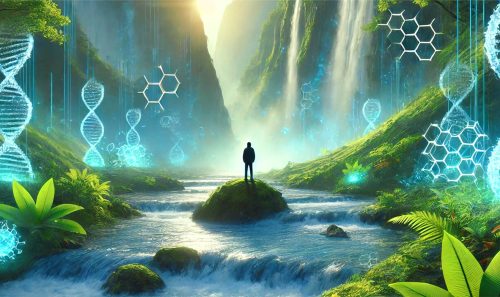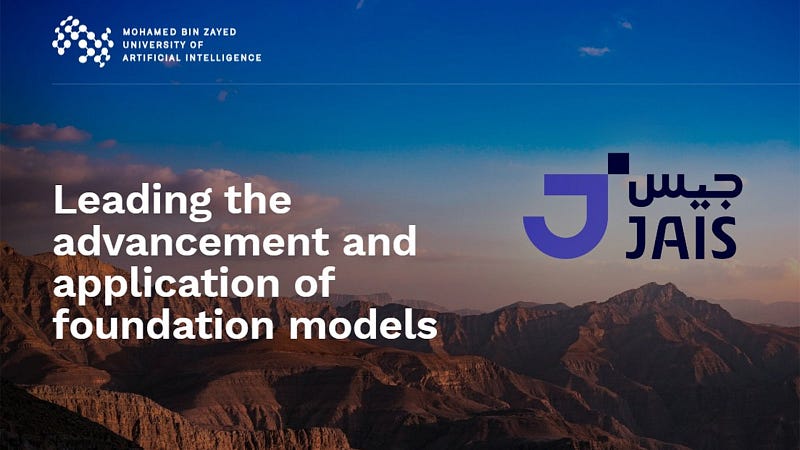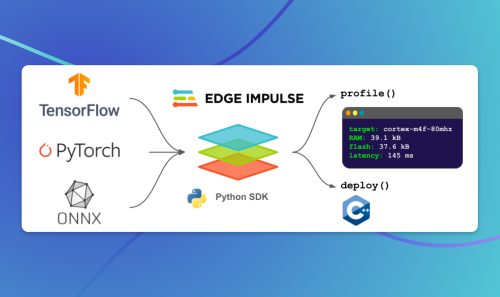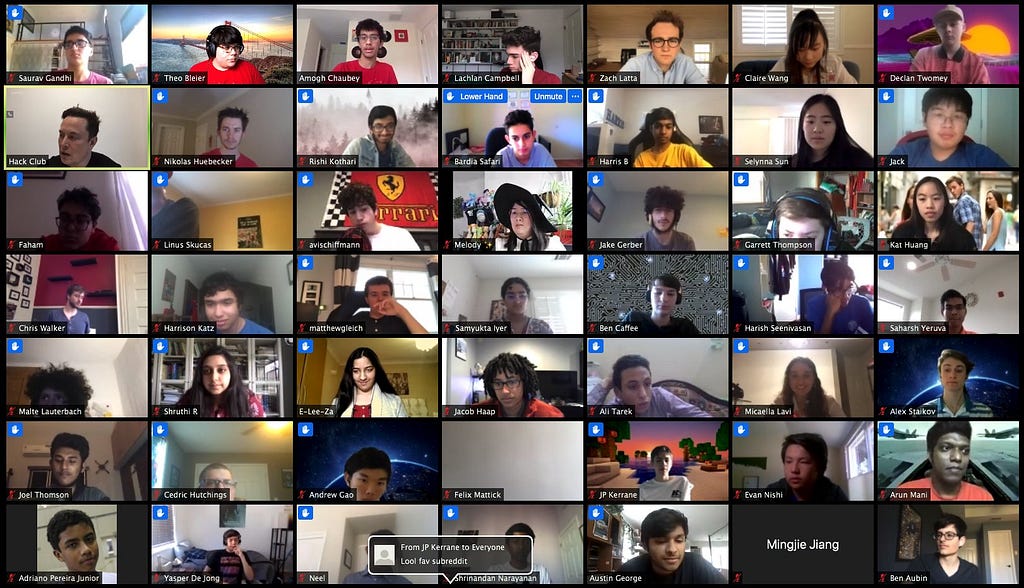
Elon Musk on Hack Club’s High School Student Members
Last Updated on June 14, 2020 by Editorial Team
Author(s): Sandeep A
News, Technology
Elon: You guys Ask way better questions than mainstream media

Tesla and SpaceX CEO Elon Musk is donating $500,000 to the Hack Club, a global network of programming clubs where members are given an opportunity to code through building projects. Musk appeared as a guest on a Hack Club AMA (Ask Me Anything) on April 24, 2020, where he fielded questions from some of the group’s members. Watch the full live-streamed video available on-demand here.
The Hack Club announced Musk’s donation on May 20, stating that the gift will allow the group to reach out to more potential members, which will help grow the Hack Club’s presence in high schools around the country.
The Hack Club is a group that dedicates itself to helping high school students learn coding through tinkering and building projects. It is an after-school program that takes place across the United States and allows students to work at their own pace to develop problem-solving skills and maneuver the building of apps, websites, games, and more.
The Hack Club’s website describes how the group will spend the money through transparency and open sourcing their finances. For more information, please visit the Hack Club’s website.
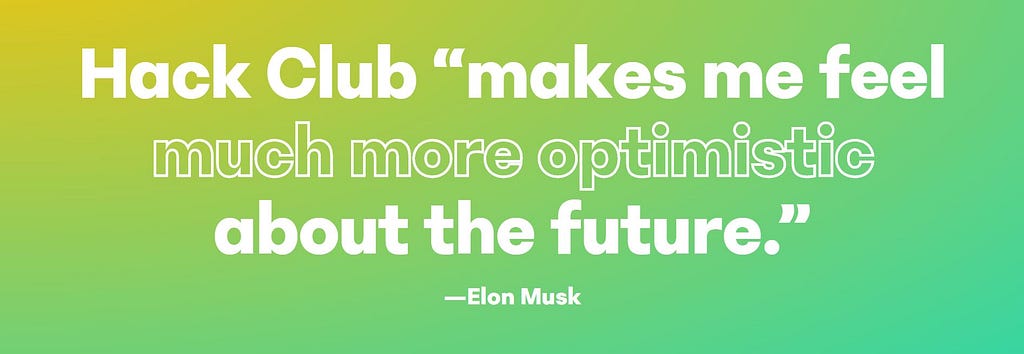
Hack Club AMA with Elon Musk
Following are a few questions that really stood out to me, which indeed, were equally complemented by insightful responses from Musk: (Note: I have paraphrased the conversations for the ease of reading while still making sure not to alter the meaning of the idea itself)
Jacob Haap: If the world is a simulation, is there a way we could manipulate the simulation or find a way to cheat to make everything better for ourselves?
Elon Musk: Whether it’s a simulation or not, we should strive to make it interesting, exciting, and have a future, we all look forward to. Be optimistic!
Expand the scope of consciousness, explore the universe, try to understand it better, figure out the right questions to ask (since we already have the answer, i.e., our universe).
Selynna Sun: How do you use your influence to do good?
Elon Musk: Transition to sustainable energy transport and sustainable energy production sooner than later — probably have them curved in faster rather than slower. Be on a path to becoming multi-planet species and space-traveling civilization; try to explore and understand the nature of the universe.
Saharsh Yeruva: What do you see as a replacement to mainstream media?
Elon Musk: The solution would be Citizen Journalism. Basically you! In fact, you ask way better questions than the mainstream media. In mainstream media, there’s a feedback mechanism around advertising and clicks, which is not healthy. It’s the system, not the individual, that needs to be fixed. Tesla, for example, has never advertised (even during its toughest times back in 2008). We just concentrated on allocating our money/resources on how to make things better. Then, it’s just word of mouth.
Cedric Hutchings: What advice do you have for makers in the Maker Movement to improve the public representation of making things?
Elon Musk: Do not self-limit yourself. Believe in yourself and keep trying. Manufacturing is pretty underrated. There’s a lot of potential for innovation in manufacturing. It’s not just making copies of something; instead, it’s making a machine that makes the machine. By far, the hardest thing, based on my experience, is: building the production system. Just to give an idea on the magnitude of difficulty: designing a rocket is like 1x hard, building one is 10x, and building a production system is at least a 100x or possibly a 1000x.
Lachlan Campbell: Is capitalism compatible with mitigating climate change? How do you see the role of for-profit companies trying to solve climate change?
Elon Musk: The problem we’re currently facing is ‘Unpriced Externality’ in the CO2 capacity of the oceans and atmosphere. Capitalism, by basic definition, is responding to market forces, i.e., doing what people want. The solution is to levy Carbon Tax! We should, perhaps, build a system that will result in the most amount of good for the most amount of people. The Government is essentially not the solution. The Government is just a corporation in a limit, and it has a monopoly. The bigger the corporation gets, the more monopolistic it is, which leads to having a weak feedback loop for serving the customers/population.
Alternative: Having a competition that helps keep the entities honest.
Claire Wang: Is there a role for Neuroscience in space travel?
Elon Musk: The brain-computer interface is important for achieving symbiosis with AI. Over time, we could drift away from machine intelligence and have a high bandwidth neural interface, thereby achieving symbiosis with AI. Our cortex and limbic system are quite happy together. The cortex is much smarter than the limbic system. Basically, the cortex is trying to make the limbic system happy. Applications: Helps solve brain injuries, restore your lost memory, restore the functionality of limbs, etc.
Neuralink aims to bridge the gap between humans and artificial intelligence by implanting tiny chips that can link up to the brain. Watch the presentation detailing Neuralink’s ambitious plans at the launch event here.
Ben Aubin: What is something interesting that you did recently, perhaps a problem that you solved?
Elon Musk: Context switching between SpaceX, Tesla, Neuralink, The Boring Company, and personal stuff.
(Elon sharing an anecdote based on his visit to the Barrel Welding Station at Starship Production Complex) — The Starship used to look like Michelin Man. We were rotating the barrel at 1/4 meter/min while the barrel rotation tool has a max capacity of 1.5 meters/min, and we were overheating the weld. The welding torch was not set at max power, which eventually resulted in overheating and softening. Stainless has a relatively high thermal expansion coefficient. To weld stainless well, you need a tight gap, hot weld, fast movement.
Jack: How would you know when Tech has gone too far? What are some solutions if AI takes over the world?
Elon Musk: Our resilience in social media is quite weak. AI tasked to maximize advertising clicks (already present on Facebook!) can create all sorts of crises. Ex: start a war for clicks! We should be on the lookout and keep monitoring social media AI.
Austin George: What’s the most important thing that you’ve learned with relevance to communicating your ideas and sharing your vision with your team(s)?
Elon Musk: I believe in using the tools of ‘Physics’ (I believe he was referring to the ‘First Principles’ approach, which in fact, he strongly believes in). Assume you are wrong, strive to be less wrong every day — that would be an incredible victory. Question authority — everyone is wrong some of the time. Let Fundamental reasoning be the one that drives the outcome, not (the individual) who said it.
Should you have any inputs that you want to share with me (or) provide me with any relevant feedback on my writing or thoughts, I’d be glad to hear from you. Please feel free to connect with me on Twitter, LinkedIn, or follow me on GitHub.
Elon Musk on Hack Club’s High School Student Members was originally published in Towards AI — Multidisciplinary Science Journal on Medium, where people are continuing the conversation by highlighting and responding to this story.
Published via Towards AI
Take our 90+ lesson From Beginner to Advanced LLM Developer Certification: From choosing a project to deploying a working product this is the most comprehensive and practical LLM course out there!
Towards AI has published Building LLMs for Production—our 470+ page guide to mastering LLMs with practical projects and expert insights!

Discover Your Dream AI Career at Towards AI Jobs
Towards AI has built a jobs board tailored specifically to Machine Learning and Data Science Jobs and Skills. Our software searches for live AI jobs each hour, labels and categorises them and makes them easily searchable. Explore over 40,000 live jobs today with Towards AI Jobs!
Note: Content contains the views of the contributing authors and not Towards AI.



